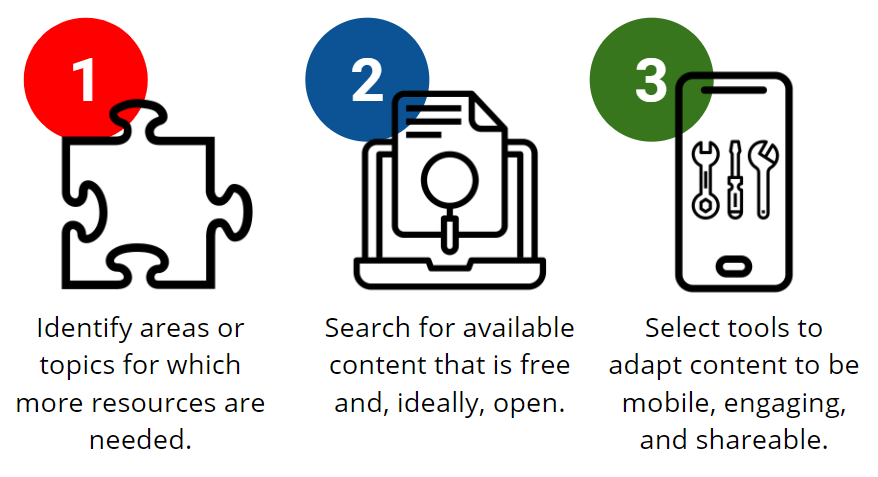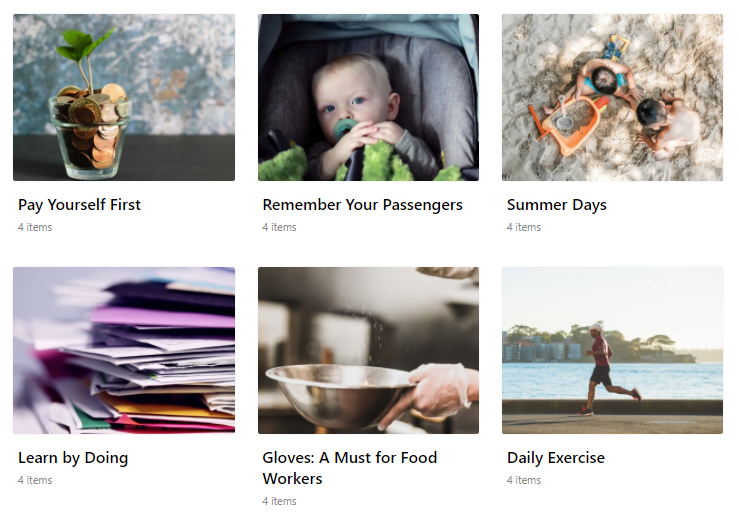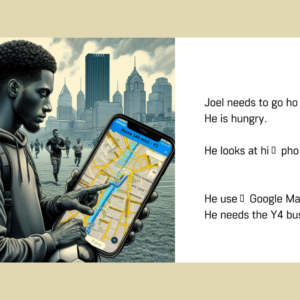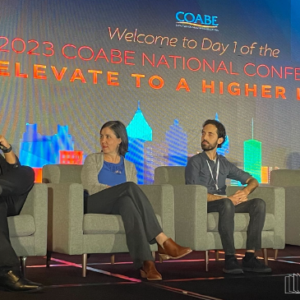As adult education programs shift from emergency remote teaching to more intentional, strategic integration of technology to support instruction and learning, we’ve seen instructors experimenting with a range of different edtech tools. Typically this begins with instructors familiarizing themselves and their learners with a specific tool. If it is found to be effective, teachers gain confidence leveraging the tool as part of regular instruction and (hopefully) develop strategies to expand its regular use with learners. Through this experimentation, tools such as Padlet, Quizlet, Wakelet (do they all end in -let???) and Google Forms have emerged as popular with adult educators, in particular because they are 1) engaging for learners, 2) easy to use (for teachers and learners), and 3) mobile-friendly. And, because these tools are so widely used, teachers often have the ability to search through libraries of resources created by others to see if they can repurpose something that already exists and aligns to the skills their learners need; or, if not, they can go about creating their own learning resources with relative ease. This widespread interest in creating learning resources is exciting! And, given the shareability of “learning objects” built with these tools, once you create something, you can choose to make it open and available to other educators and learners. While in theory this seems like a win-win scenario, it ignores three major barriers we’ve identified as to why there isn’t more widespread use of open education resources (OER) within adult education:
-
- Volume: Because there are so many freely available resources out there, it can be daunting to sift through and find resources that work for your learners (aka “the paradox of choice”). How do I know which of these options will work best for my learners and their context? What is the format? Is it effective? Is it aligned to the skills my learners need?
- Trust: Given these open libraries and repositories are just that—open—it can be difficult to evaluate learning resources created by others for things such as accuracy and effectiveness. Who created the resource? What is their background? Is this information research-based and current?
- Usability: Just because something can be copied or downloaded does not mean that it is all that usable. How am I going to use this with my learners? Where does it fit into my instruction? What types of modifications are necessary to make it effective or relevant to my learners?
Combined, these barriers indicate there is a need for learning objects to be more “reusable” by way of being easier to find, evaluate, and integrate into instruction.
The EdTech Maker Space: PD with Purpose
COVID has created a universal need for adult educators to 1) select high-quality tools to facilitate remote instruction, and 2) find or create content resources using these tools that align to the skills adult learners need. Given the massive scale of these needs, CrowdED Learning sought to see if perhaps there was a way to align them. What if, while learning how to use new edtech tools, teachers were given the opportunity to apply their new skills by creating content in high-need areas and in an organized manner? Enter the EdTech Maker Space. The EdTech Maker Space is an experimental PD format that is designed to support educators in building their skills using free edtech tools while developing quality, mobile-friendly, openly licensed resources that can be used by everyone. In July 2020, our inaugural cohort set out to help educators learn how to use tools that can help support the remote teaching and learning that has been forced by way of COVID-19 while providing structured practice opportunities using openly licensed content to develop a library of open education reading resources designed for adults at early literacy levels.  For our inaugural project, we followed these steps to determine our focus:
For our inaugural project, we followed these steps to determine our focus:
- Identify areas or topics for which more resources are needed. One content area for which we repeatedly hear there is a lack of resources is early-literacy level readings that are appropriate for adults.
- Search for available content that is free and, ideally, open. We already were familiar with a great resource—Reading Skills for Today’s Adults—that is widely used within adult education. As part of a recent update made to this leveled library, they created a supplement (in the form of a Word document) that includes vocabulary, language, and comprehension practice opportunities.
- Select tools to adapt content to be mobile, engaging, and shareable. While there are a number of excellent activities within the RSTA supplement, we chose two in particular because they lend themselves well for two popular tools being used by educators: Quizlet and Google Forms. In addition, to pull all of the story-level resources together (the Quizlet vocabulary study set, the original story, and the Google Forms comprehension quiz, we decided to use Wakelet.
As a result of this project, 44 teachers across the United States (representing 25 states + DC) were trained in using and creating open resources using Quizlet, Google Forms, and Wakelet. By way of providing structured opportunities to practice using these edtech tools leveraging openly licensed content from Reading Skills for Today’s Adults, participants created over 1,000 sharable, customizable, mobile-friendly resources to support the 345 readings within the RSTA library…in just under two months’ time. This library of resources is now part of the Marshall Leveled Reading Program and includes 345 Wakelets that each include the original story, vocabulary practice using Quizlet, and comprehension checks using Google Forms. In addition, these resources have been organized into a learner-facing app, and instructors have access to all of the full resource library via this Wakelet.  Most critically, all of the resources that have been created can be copied, customized, and shared by instructors in whatever way they see fit. One region in South Carolina has begun copying the Wakelets and using the resource library to create copies of the Google Forms quizzes for each story. By switching out the generic Google Forms quiz within the Wakelet with their own version, instructors can now get reporting on completion for their students. Additionally, this region has submitted their versions to the state for Teacher Verification Model (TVM) approval, allowing instructors to now have 345 new readings that count toward student proxy contact hours within the state.
Most critically, all of the resources that have been created can be copied, customized, and shared by instructors in whatever way they see fit. One region in South Carolina has begun copying the Wakelets and using the resource library to create copies of the Google Forms quizzes for each story. By switching out the generic Google Forms quiz within the Wakelet with their own version, instructors can now get reporting on completion for their students. Additionally, this region has submitted their versions to the state for Teacher Verification Model (TVM) approval, allowing instructors to now have 345 new readings that count toward student proxy contact hours within the state.
Future Implications for the EdTech Maker Space Model
The EdTech Maker Space is a model for professional development we believe can help rapidly expand the availability of effective, usable, mobile-friendly learning resources for adult education learners and instructors. Given this, the model is now part of a broader initiative, generously funded by the WES Mariam Assefa Fund, aimed at establishing an open content sharing ecosystem to increase equitable access to and contribution of learning resources to support adult learners including immigrants and refugees. Through this funding, we will be exploring future ETMS projects focused around three distinct areas:
- Resource Curation: How can we run projects to support educators in curating and organizing quality openly licensed resources to make them more usable and accessible to others?
- Resource Development: Similar to our first project, how can we take existing content and make them more usable and shareable by way repurposing them using edtech tools?
- Content Creation: How can we organize projects that leverage educators’ content-area expertise to develop new, open education resources around core areas of need?
To learn about this initiative and the broader content sharing ecosystem, please visit the CrowdED Learning project page. If you wish to become involved in upcoming ETMS projects, we encourage you to sign up for our EdTech Center newsletter. And if you have ideas for future ETMS or other CrowdED Learning efforts, please email Jeff Goumas @ jeff_goumas@worlded.org.




